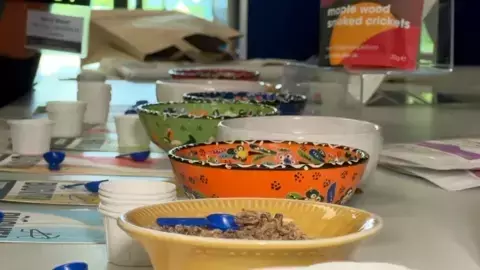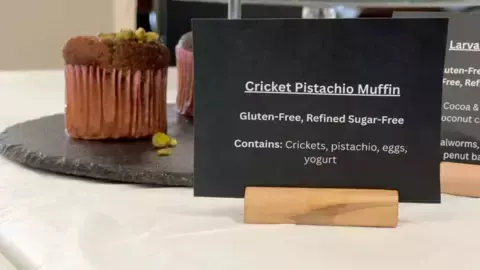





In the quest for sustainable food alternatives, edible insects are emerging as a promising solution. Recently, a conference at the University of Nottingham explored the potential of insect-based protein in addressing global food challenges. The event brought together industry leaders and regulators to discuss how farming insects could revolutionize our dietary habits while ensuring environmental sustainability.
The Conference on Farmed Insect Protein
During a crisp autumnal season, an innovative gathering took place at the Sutton Bonnington campus of the University of Nottingham. This two-day event featured discussions led by Nick Rousseau, managing director of the UK Edible Insect Association (UKEIA), who highlighted the nutritional benefits of insects. These creatures offer high levels of protein and are consumed regularly in many traditional diets worldwide. Crucially, insect farming avoids depleting wild populations, focusing instead on ethical cultivation practices that produce eco-friendly results.
At the conference, held on April 24th and 25th, attendees sampled various insect-derived snacks such as flavored crickets, roasted mealworms, and cricket flour-based protein bars. One attendee, Marshall Waller—a farmer from the Peak District—acknowledged his initial hesitation but admitted the taste was surprisingly pleasant. He emphasized the importance of exploring alternative methods to meet the demands of a growing population without compromising ecological balance.
Professor Tim Parr of the University of Nottingham further explained their research into using unconventional organisms and plants as viable food sources. His team investigates optimal growth conditions and yield potentials for these tiny yet powerful contributors to the food chain. However, Nahla Mahmoud, founder of Edinburgh's The Insect Café, pointed out societal stigmas surrounding insect consumption in Western cultures. She advocates rebranding this resourceful ingredient by integrating it subtly into everyday meals like porridge or smoothies.
Beyond human nutrition, insects are also being utilized in pet food production, offering greener alternatives compared to conventional animal feeds. With advancements in artificial intelligence helping reduce costs associated with large-scale insect farming operations, there is optimism about scaling up this practice globally.
From a journalist's perspective, this exploration into edible insects represents not only a scientific breakthrough but also a cultural shift necessary for long-term survival. It challenges us to rethink preconceived notions about food choices and embrace innovative solutions even if they seem unconventional at first glance. As we face looming crises related to food scarcity, adopting sustainable practices today ensures healthier tomorrows for both humanity and planet Earth alike.
